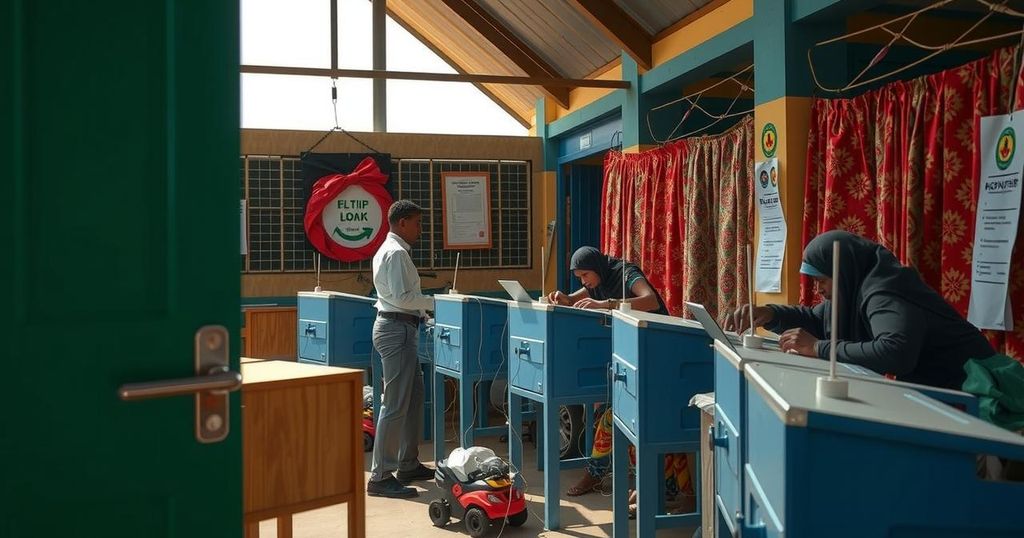Somaliland Presidential Election Marks Significant Political Event

Voting is underway in Somaliland’s presidential election, which has been delayed for two years. Over a million voters are expected to cast their ballots amid political tensions in the Horn of Africa. Incumbent President Muse Bihi Abdi seeks reelection against Abdirahman Mohamed Abdullahi and Faisal Ali Warabe, who advocate for democratic reforms and national unity. Somaliland, independent since 1991, continues to seek international recognition amidst economic struggles and political disagreements with Somalia.
Voting commenced on Wednesday in Somaliland, the self-declared independent region of Somalia, during a significant presidential election, which had been postponed for two years amidst escalating political tensions in the Horn of Africa. Local media captured scenes of long lines of voters, many expressing their desire for economic growth and increased employment opportunities. An estimated 1 million voters are expected to participate across over 2,000 polling stations, with 28 international observers monitoring the proceedings. Incumbent President Muse Bihi Abdi of the ruling Kulmiye Party is vying for reelection, having served for seven years with a focus on garnering international recognition for Somaliland. His main challenger, Abdirahman Mohamed Abdullahi from the Waddani Party, has campaigned on promises of advancing democratic reforms and fostering social unity. Faisal Ali Warabe, who represents the Justice and Welfare Party, is calling for the establishment of a national unity government. Since its declaration of independence in 1991, Somaliland has maintained its own governance structures, economy, and security despite lacking global recognition, in stark contrast to the ongoing instability in Somalia. The region’s economic challenges contributed to the electoral delay announced by the government in 2022. Recent agreements with Ethiopia regarding access to the Indian Ocean have intensified political tensions with Somalia, which perceives these actions as a threat to its territorial sovereignty. This election marks the fourth presidential election for Somaliland, raising concerns about the integrity and stability of its electoral framework.
Somaliland declared its independence from Somalia in 1991, stemming from a turbulent civil conflict. Despite establishing its own government, currency, and security forces, it has not received formal international recognition. This lack of recognition complicates its political dynamics, especially in relations with Somalia and neighboring countries. The region has maintained relative stability and avoided the insecurity and conflict that have plagued Somalia, although economic challenges persist, prompting delays in electoral processes and raising questions about the future of its governance.
The presidential election in Somaliland not only reflects the region’s aspirations for stability and economic growth but also highlights the unique political landscape shaped by its quest for international recognition. As incumbent President Muse Bihi Abdi seeks a second term against opposition candidates promoting reform and unity, the outcome will likely impact Somaliland’s ongoing efforts towards establishing its legitimacy on the global stage. This election is a pivotal moment, embodying both the region’s challenges and its progress in democratic governance.
Original Source: apnews.com






